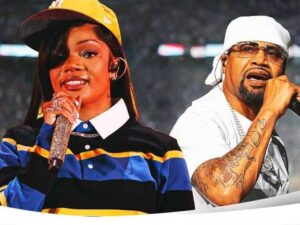Owen Farrell Warns of “Social Media Poison” Amid Rising Online Abuse in Rugby

Owen Farrell Warns of “Social Media Poison” Amid Rising Online Abuse in Rugby
July 22, 2025 | By Rugby Today Reporter
Former England captain Owen Farrell has issued a stark warning about the growing toxicity of social media, describing it as “poison” in a candid interview that has reignited conversations around mental health and online abuse in professional rugby. Farrell, who stepped away from international rugby earlier this year before briefly captaining the British & Irish Lions in a pre-tour camp, has spoken out about the deeply damaging effects that digital criticism and harassment can have on players’ wellbeing.
The remarks come during a time when professional athletes across various sports are increasingly speaking out against the wave of negativity they encounter online — from harsh criticism of performance to deeply personal attacks, often bordering on or outright becoming abuse.
—
🧠 “I Struggle to Comprehend the Poison”: Farrell’s Brutal Honesty
In an interview with Reuters, Farrell didn’t hold back:
> “I struggle to comprehend some of the poison that’s out there. The online space has become something that’s less about discussion or passion and more about judgment, hate, and taking people down.”
He admitted that one of the reasons behind his decision to take a break from international duty earlier this year was the mounting pressure and scrutiny that accompanied every match and public appearance. Despite his numerous achievements—including leading England to a Rugby World Cup final in 2019 and amassing over 100 caps—Farrell has often found himself a lightning rod for criticism.
—
💻 Social Media’s Growing Shadow Over Rugby
Farrell’s comments have resonated widely with fans, teammates, and fellow professionals. Several current and former players, including Maro Itoje, Dan Biggar, and Stuart Hogg, have echoed his concerns, noting that social media has grown increasingly hostile in recent years.
Platforms such as X (formerly Twitter), Instagram, and TikTok have become battlegrounds where player performances are dissected, and mistakes are magnified within seconds. While social media offers athletes a way to connect with fans, promote charitable causes, and build personal brands, the downside is an avalanche of unfiltered public opinion—some of it extremely damaging.
—
🧍 Humanizing the Athlete
One of Farrell’s central messages is the need to remember the humanity of players.
> “We’re not robots. We don’t just get programmed to win every match. There are emotions, there are families behind us, and there’s a person behind the jersey,” he said.
He referenced the toll that online vitriol takes not only on players but also on their families. “When your loved ones start feeling the impact, that’s when it becomes truly toxic,” Farrell added.
The issue is particularly acute for younger players rising through the ranks who are thrust into the limelight without the life experience or media training to cope with online abuse.
—
🛡️ Calls for Safeguards and Action
In response to Farrell’s comments, the Rugby Players’ Association (RPA) has called for stricter policies from clubs, national bodies, and social media companies. Suggested measures include:
Enhanced mental health support for players
Direct moderation of team-linked social accounts
Legal action against threats or hate speech
Social media literacy programs for players and fans
Farrell also emphasized the need for collective responsibility:
> “This isn’t just about players being sensitive. It’s about all of us deciding what kind of culture we want to build around the sport.”
—
🏉 A Wider Reflection for Rugby
Farrell’s message comes at a time when rugby is already grappling with other societal issues—racial abuse, concussion litigation, and player welfare concerns among them. His words serve as a reminder that while the game continues to evolve on the field, there must also be progress off it.
As the British & Irish Lions continue their 2025 tour and attention returns to the pitch, Farrell’s voice stands as a powerful call for respect, empathy, and reform in how we engage with the sport and the people who play it.
—
“We can have passion without poison,” Farrell concluded. “That’s the game I want to be a part of.”



